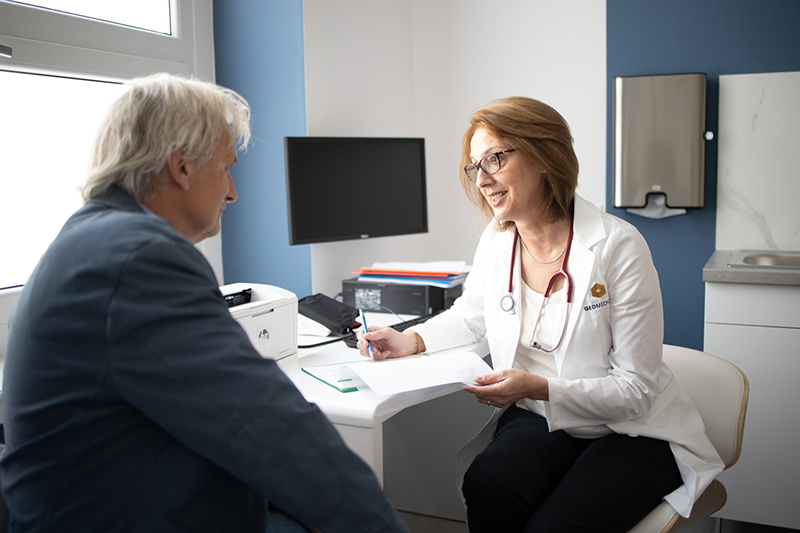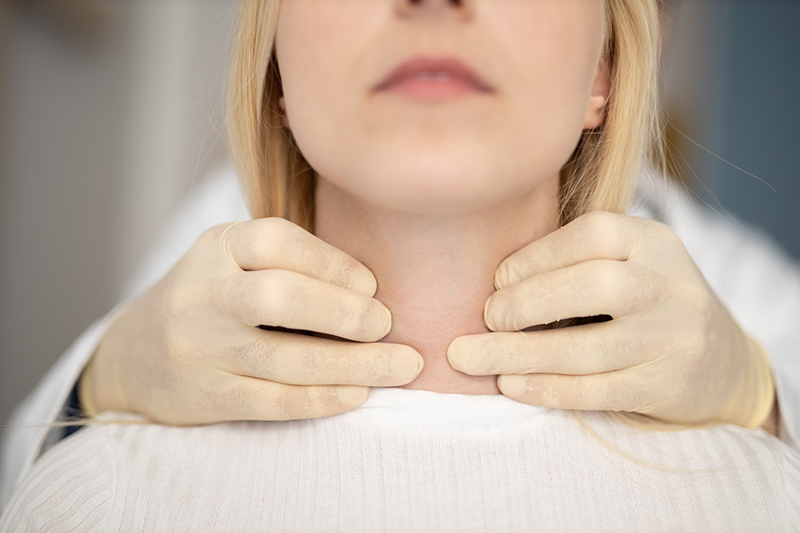

What does
Endocrinology deal with?
Our body produces numerous hormones, the complex interactions of which are responsible for the balanced and healthy functioning of the body. These chemical substances provide communication between organs and help the body adapt to constantly changing external stimuli. Hormones are produced by endocrine glands (e.g., pituitary gland, thyroid, adrenal glands, gonads), which are under very complex regulation. Due to this complexity, the investigation of endocrine disorders is also intricate, as a single symptom may indicate problems involving multiple organs. Our endocrinologists work closely with other specialties, such as gynecology, gastroenterology, and diabetology.
Endocrine disorders include thyroid dysfunction (hypothyroidism or hyperthyroidism), ovarian dysfunction (e.g., PCOS), and hormonal imbalances affecting fertility (e.g., insulin resistance). Obesity, osteoporosis, and hypertension may also have hormonal imbalances as their underlying causes, which require investigation.

When should you visit an endocrinologist?

How does an endocrinological examination proceed?
An endocrinological examination always begins with a thorough inquiry into the patient’s symptoms. The specialist will then gather information about previous illnesses, hospital treatments, review medications, and examine previous medical records. After this, blood pressure and pulse measurements are taken using an automatic blood pressure monitor.
This is followed by a detailed physical examination. Our specialist assesses the condition of the skin and looks for signs of circulatory problems or lower limb edema. The thyroid gland is palpated, and the heart and lungs are listened to with a stethoscope. Finally, the abdomen is palpated to assess the size of internal organs (liver, spleen). The examination is completely painless, and fasting is not required. It is important that the patient brings all previous medical documents and a list of current medications. If necessary, our endocrinologist may recommend further specialist examinations (e.g., urology, gynecology).
A comprehensive laboratory blood test is essential for the accurate diagnosis of hormonal imbalances. Our endocrinologist will explain the exact components of the test in detail. The blood test will be conducted at a pre-arranged appointment. In the case of special blood tests (e.g., for fertility issues), the timing of the female cycle is also important. The blood test itself may cause mild discomfort. While seated, our assistant draws blood from a suitable vein using a needle, and the sample is sent for analysis. The results will be evaluated at a follow-up appointment, which is considered a control visit. If necessary, urine tests may also be performed.
Ultrasound is an important part of the endocrinological examination. Thyroid ultrasound can visualize thyroid nodules, other benign or malignant changes, and assess the size of the thyroid. If needed, a fine-needle aspiration biopsy can be performed under ultrasound guidance to help with an accurate diagnosis. A general abdominal ultrasound can provide information about the condition of major abdominal organs (liver, spleen, kidneys). In cases of gynecological or fertility issues, the internal female reproductive organs can be thoroughly examined, including the ovaries and follicles, assessing their current maturity status. In men, a testicular ultrasound may also be required.
If further imaging tests are needed beyond the above examinations, we can also arrange CT or MRI scans.
Prices in Endocrinology
Doctors in Endocrinology




